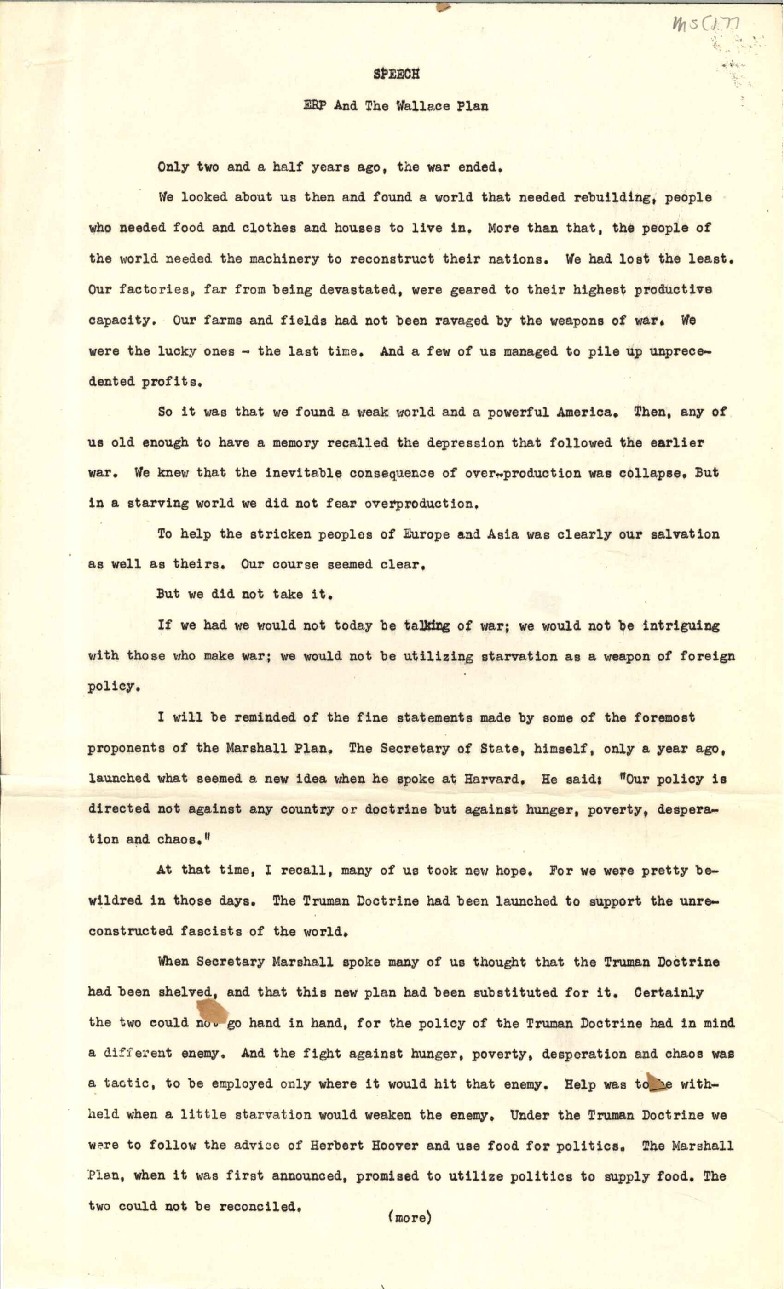
SPEECH
ERP And The Wallace Plan
Only two and a half years ago, the war ended.
We looked about us then and found a world that needed rebuilding, people who needed food and clothes and houses to live in. More than that, the people of the world needed the machinery to reconstruct their nations. We had lost the least.
Our factories, far from being devastated, were geared to their highest productive capacity. Our farms and fields had not been ravaged by the weapons of war. We were the lucky ones—the last time. And a few of us managed to pile up unprecedented profits.
So it was that we found a weak world and a powerful America. Then, any of us old enough to have a memory recalled the depression that followed the earlier war. We knew that the inevitable consequence of overproduction was collapse. But in a starving world, we did not fear overproduction.
To help the stricken peoples of Europe and Asia was clearly our salvation as well as theirs. Our course seemed clear.
But we did not take it.
If we had, we would not today be talking of war; we would not be intriguing with those who make war; we would not be utilizing starvation as a weapon of foreign policy.
I will be reminded of the fine statements made by some of the foremost proponents of the Marshall Plan. The Secretary of State, himself, only a year ago, launched what seemed a new idea when he spoke at Harvard. He said: Our policy is directed not against any country or doctrine but against hunger, poverty, desperation, and chaos.
At that time, I recall, many of us took new hope. For we were pretty bewildered in those days. The Truman Doctrine had been launched to support the unreconstructed fascists of the world.
When Secretary Marshall spoke, many of us thought that the Truman Doctrine had been shelved and that this new plan had been substituted for it. Certainly, the two could not go hand in hand, for the policy of the Truman Doctrine had in mind a different enemy. And the fight against hunger, poverty, desperation, and chaos was a tactic to be employed only where it would hit that enemy. Help was to be withheld when a little starvation would weaken the enemy. Under the Truman Doctrine, we were to follow the advice of Herbert Hoover and use food for politics. The Marshall Plan, when it was first announced, promised to utilize politics to supply food. The two could not be reconciled.
(more)
| 1 | 2 | 3 | 4 | 5 | 6 | 7 | 8 | 9 | 10 | 11 |